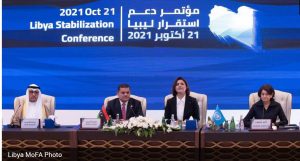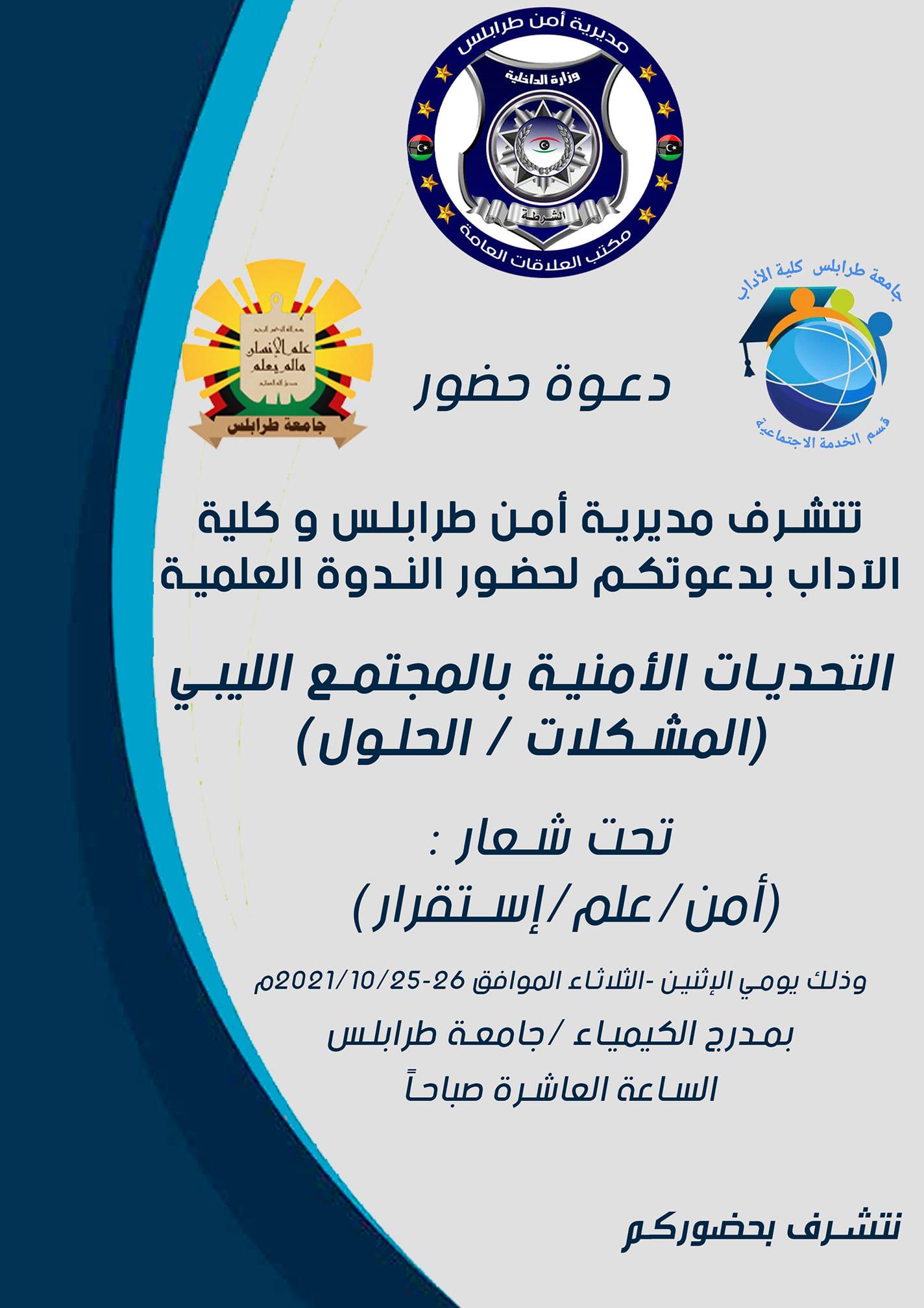By Sami Zaptia.

Tripoli, 24 October 2021:
Commenting on Libya’s Stabilization Conference held last Thursday in Tripoli, NGO activist and member of the Libyan Political Dialogue Forum (LPDF), Zahra Langhi, said there will be no stability in Libya without renewing the political legitimacy of all existing institutions through elections. In an eleven-point statement, Langhi made the case for Libya’s need to hold elections, as prescribed by the LPDF Roadmap. She urged the international powers not to forgo elections for superficial and transitory stability.
Langhi stated:
1-The Libya Stabilization Initiative Conference seems to prioritize stability over legitimacy which has stirred division among Libyans who have aspirations to elect their representatives democratically and fear that the Conference is set to undermine the LPDF Roadmap.
2-The Stabilization Conference comes at a critical moment for the Abd Alhamid Aldabaiba Libyan Government of National Unity which is facing serious challenges after the withdrawal of confidence by parliament (House of Representatives – HoR) last month and the the Barqa /Cyrenaica/Eastern officials’ statement threatening to withdraw from the GNU amid concerns over the establishment of a separate government in the East.
3-If these serious developments mean anything, it is that Libya is in dire need to resolve the problem of political legitimacy through a reset of all the political institutions, including the interim GNU, and creating new institutions with strong popular support and mandate.
4-The difficult situation Libya is facing today is that the interim GNU, albeit Aldabiaba’s rentier neo patrimonial policies and populist messaging, lacks the authority, the legitimacy, and the capacity to rule after 24 December 2021 (the prescribed election date set by the LPDF’s Roadmap) .
5-The current political stalemate and fragmentation have resulted in a disempowered interim government, lacking the capacity, authority, and legitimacy to move things forward in a meaningful way. The current status quo cannot be maintained. It leads to further instability and division.
6-Unpacking the Stabilization Initiative, it is cantered upon two basic proposals, the rest is just rhetoric with no real measures. 1) The postponing of the elections of on the grounds that Libya is not ready for them. 2) Unfreezing Libya’s assets abroad and handing them to an interim government.
7-The Stabilization Initiative fails to set a clear mandate, guiding principles, framework, concrete measures, a timeframe, and a clear structure indicating how this initiative would really be Libyan owned and Libyan-led initiative! This would make this gathering on Libya just another meeting in the long series of meetings held since 2011 – with no follow up measures!
8-The Stabilization Initiative lacks completely a gender responsive approach. No surprise here, as Prime Minister Aldabaiba had set the stage for the Conference by announcing an investigation into the women’s ministry for signing an MOU with UN Women to develop WPS NAP just as the UN’s Rosemary Dicarlo arrives to Libya.
9- While the Stabilization Initiative is marketed as a ‘‘Libyan owned’’ and ‘‘Libyan led’’ initiative, it fails to adopt community bottom-up approaches to recovery, reform and stabilization. The initiative itself was developed behind closed doors not in consultation with civil society.
10-The Stabilization Initiative fails to address one of Libya’s major problems namely corruption, which poses risks to political legitimacy and stability and increasing its fragility. There was no mechanisms nor mention of ‘‘corruption’’ as a real challenge while calling for the unfreezing of Libya’s assets abroad.
11- Without a legitimate government with a popular mandate (freely elected by the people) to engage with, the international community is losing a potential reliable partner. The challenges in Libya pose a threat not only to the stability of Libya but that of the entire region.










